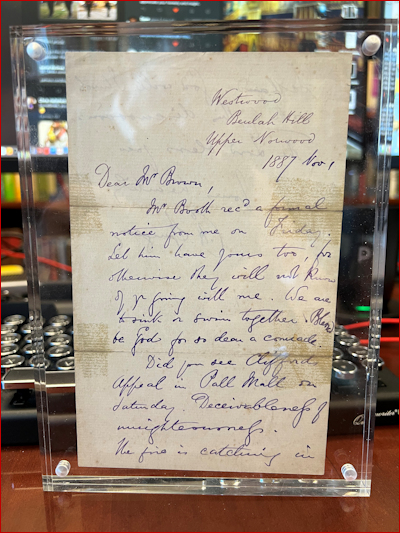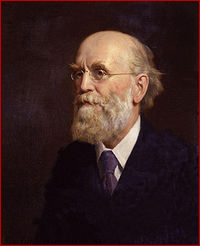Searched: christianity
News
WASHINGTON, D.C. - Building on research released in 2021 that revealed that only 21 percent of those who regularly attend evangelical churches have a biblical worldview, Family Research Council's Center for Biblical Worldview has published a new resource titled, "An Introduction to Worldview: Refining the Lens Through Which You See Everything." The booklet examines the concept of worldview, examines the world's leading worldviews, and makes the case for why Christianity offers the most satisfying answers to life's biggest questions. The new resource is the fifth installment in FRC's Biblical Worldview Series and answers questions like:...
|
. . . and so much the more as you see the Day approaching.by Phil Johnson
  avin Ortlund has written a blogpost titled "Should Churches in California Defy Government Restrictions? A Response to John MacArthur." Time won't permit me to go through his entire post, but I want to clarify one point that Ortlund gets wrong, because it's a crucial one, and I've seen it repeated several times on Twitter. (I've even had a couple of angry emails from people who think John MacArthur said what Ortlund claims he said.) Since it's the starting point of Ortlund's blogpost, much of what he writes in the piece hinges on his misunderstanding of a partial quote he has pulled from MacArthur.Ortlund writes, for example, "To claim that those complying with the government restrictions 'don't know what a church is and . . . don't shepherd their people' is both unhelpful and unkind" (italics added). MacArthur made no such blanket statement, but Ortlund seems to believe that's what he meant, and Ortlund feels personally targeted by it.Here's what John MacArthur did say, with a little bit of context:Churches are shutting down. Large churches are shutting down until (they say) January. I don't have any way to understand that—other than they don't know what a church is and they don't shepherd their people. But that's sad. And you have a lot of people in Christianity who seem to be significant leaders who aren't giving any strength and courage to the church. They're not standing up and rising up and calling on Christians to be the church in the world.—John MacArthur (2 August 2020)As the context plainly shows, Pastor MacArthur was talking about pastors who are doing what Andy Stanley and JD Greear have done—namely, they have stopped gathering as a church and made small home groups a long-term substitute for congregational worship. And they say they have no intention of re-gathering the whole flock until sometime in 2021.MacArthur's remark was not about masks and social distancing. It wasn't aimed at churches that have continued to gather the flock by moving their services outdoors or off site. And let's be clear: That would exclude Gavin Ortlund from MacArthur's censure. In his blogpost, Ortlund himself says, "Our church has chosen to meet outdoors." Wonderful. He is to be commended for that. But would Pastor Ortlund not actually agree that it would reflect an unbiblical notion of what the church should be if he had given up on the duty spelled out in Hebrews 10:25—which (by the way) Ortlund himself lists first in his list of "four biblical values that should inform our decision-making in this situation"?No one who is making a good-faith effort not to forsake the regular assembly has any cause to feel insulted by John MacArthur's comment. I'm convinced that no one who is listening carefully to what Pastor MacArthur is saying (and what he has said—repeatedly—about Grace Church's response to the indefinite extension of the quarantine in California) has any cause to feel targeted—unless they are arguing that long-term closure of churches is the right response to the pandemic.I admit, it did surprise me last week when Jonathan Leeman, Editorial Director of the 9Marks ministry, indicated he appreciated JD Greear's approach, implying that canceling congregational worship for the rest of the year is a viable (perhaps even better) answer to the quarantine than John MacArthur's decision simply to open the doors of the church and allow the congregation to come. Leeman himself had previously written an excellent article, "The Church Gathered," defending the priority of the congregational assembly. avin Ortlund has written a blogpost titled "Should Churches in California Defy Government Restrictions? A Response to John MacArthur." Time won't permit me to go through his entire post, but I want to clarify one point that Ortlund gets wrong, because it's a crucial one, and I've seen it repeated several times on Twitter. (I've even had a couple of angry emails from people who think John MacArthur said what Ortlund claims he said.) Since it's the starting point of Ortlund's blogpost, much of what he writes in the piece hinges on his misunderstanding of a partial quote he has pulled from MacArthur.Ortlund writes, for example, "To claim that those complying with the government restrictions 'don't know what a church is and . . . don't shepherd their people' is both unhelpful and unkind" (italics added). MacArthur made no such blanket statement, but Ortlund seems to believe that's what he meant, and Ortlund feels personally targeted by it.Here's what John MacArthur did say, with a little bit of context:Churches are shutting down. Large churches are shutting down until (they say) January. I don't have any way to understand that—other than they don't know what a church is and they don't shepherd their people. But that's sad. And you have a lot of people in Christianity who seem to be significant leaders who aren't giving any strength and courage to the church. They're not standing up and rising up and calling on Christians to be the church in the world.—John MacArthur (2 August 2020)As the context plainly shows, Pastor MacArthur was talking about pastors who are doing what Andy Stanley and JD Greear have done—namely, they have stopped gathering as a church and made small home groups a long-term substitute for congregational worship. And they say they have no intention of re-gathering the whole flock until sometime in 2021.MacArthur's remark was not about masks and social distancing. It wasn't aimed at churches that have continued to gather the flock by moving their services outdoors or off site. And let's be clear: That would exclude Gavin Ortlund from MacArthur's censure. In his blogpost, Ortlund himself says, "Our church has chosen to meet outdoors." Wonderful. He is to be commended for that. But would Pastor Ortlund not actually agree that it would reflect an unbiblical notion of what the church should be if he had given up on the duty spelled out in Hebrews 10:25—which (by the way) Ortlund himself lists first in his list of "four biblical values that should inform our decision-making in this situation"?No one who is making a good-faith effort not to forsake the regular assembly has any cause to feel insulted by John MacArthur's comment. I'm convinced that no one who is listening carefully to what Pastor MacArthur is saying (and what he has said—repeatedly—about Grace Church's response to the indefinite extension of the quarantine in California) has any cause to feel targeted—unless they are arguing that long-term closure of churches is the right response to the pandemic.I admit, it did surprise me last week when Jonathan Leeman, Editorial Director of the 9Marks ministry, indicated he appreciated JD Greear's approach, implying that canceling congregational worship for the rest of the year is a viable (perhaps even better) answer to the quarantine than John MacArthur's decision simply to open the doors of the church and allow the congregation to come. Leeman himself had previously written an excellent article, "The Church Gathered," defending the priority of the congregational assembly. In the discussions currently taking place in various Internet forums, it seems there is no shortage of church leaders who, faced with the pragmatic difficulties of the recent pandemic, have adopted the view that it's just fine for a pastor to make plans not to gather the flock at all for the better part of a year. Those who think that way ought to feel the sting of John MacArthur's rebuke. The prevalence of such thinking among evangelicals is a disturbing reality, and one that shouldn't be glossed over or downplayed just because someone's feelings might accidentally get hurt.MacArthur was absolutely right in what he said. Those who think closing churches for the remainder of the calendar year is a good plan frankly don't have a biblical understanding of what the church is to be. The fact that so many in current positions of church leadership don't see that sets up a scary scenario for the future of the evangelical movement. In the discussions currently taking place in various Internet forums, it seems there is no shortage of church leaders who, faced with the pragmatic difficulties of the recent pandemic, have adopted the view that it's just fine for a pastor to make plans not to gather the flock at all for the better part of a year. Those who think that way ought to feel the sting of John MacArthur's rebuke. The prevalence of such thinking among evangelicals is a disturbing reality, and one that shouldn't be glossed over or downplayed just because someone's feelings might accidentally get hurt.MacArthur was absolutely right in what he said. Those who think closing churches for the remainder of the calendar year is a good plan frankly don't have a biblical understanding of what the church is to be. The fact that so many in current positions of church leadership don't see that sets up a scary scenario for the future of the evangelical movement. |
by Phil Johnson
  e regard the wearing of masks in worship first of all as a matter of conscience—and since we are forbidden by the teaching of Christ not to make extrabiblical religious rules that bind men's consciences (Matthew 23:1-7; 15:1-9), we neither mandate nor forbid the wearing of masks in worship. e regard the wearing of masks in worship first of all as a matter of conscience—and since we are forbidden by the teaching of Christ not to make extrabiblical religious rules that bind men's consciences (Matthew 23:1-7; 15:1-9), we neither mandate nor forbid the wearing of masks in worship. Veils and face coverings have profound religious significance in many world religions. Indeed, much of the rhetoric surrounding COVID masks (even among evangelical Christians) describes them as symbols of personal piety. Serious questions about the usefulness, effectiveness, or medical necessity of masks are routinely dismissed or swept aside, and people are told to wear them simply because they are a tangible, visible means of showing love for one's neighbor. This rationale is pressed on people's consciences regardless of whether it can be proved statistically that they really safeguard anyone from the virus, and irrespective of the fact that masks can cause other medical problems. But COVID masks have become, in effect, secularism's substitute for religious vestments. No one can reasonably deny that face coverings have become the chief symbol of popular culture's sanctimonious devotion to the secularist credo.But one of the distinctives of Christian worship is face-to-face fellowship. Koinonia is the Greek expression the New Testament uses to describe it. The word conveys the idea of community, close association, and intimate social contact. Thus the apostle's instructions: "Greet one another with a holy kiss" are repeated four times in the Pauline epistles (Romans 16:16; 1 Corinthians 16:20; 2 Corinthians 13:12; 1 Thessalonians 5:22).The importance of face-to-face koinonia is stressed repeatedly. Paul writes, "We . . . were all the more eager with great desire to see your face" (1 Thessalonians 2:17). "We night and day keep praying most earnestly that we may see your face" (3:10). The apostle John writes, "I hope to come to you and speak face to face, so that your joy may be made full" (2 John 12). "I hope to see you shortly, and we will speak face to face" (3 John 14).Worship, in particular, is best seen as an open-face discipline. Covering the face is a symbol of disgrace or shame (Jeremiah 51:51; Job 40:4). Concealing one's mouth while praising God suppresses the visible expression of worship. The Psalms' calls to worship are filled with the words "tongue," "lips," and "mouth." "Sing aloud unto God our strength: make a joyful noise" (Psalm 81:1). " Wholehearted worship cannot be sung as intended—unrestrained and unmuted—from behind a state-mandated face covering. We see "the Light of the knowledge of the glory of God in the face of Christ" (4:6), and our faces were designed by him to reflect that glory back to heaven in uninhibited praise.It is true, of course, that for now, "We see in a mirror dimly, but [someday] face to face" (1 Corinthians 13:2). That speaks of a face-to-face encounter with Christ himself, when we will be brought into the fullness of knowledge and moral perfection. John the apostle says, "We know that when He appears, we will be like Him, because we will see Him just as He is" (1 John 3:2).Despite the temporary limitation of seeing heaven's glory as if we were looking in a dim mirror, we nevertheless are privileged as Christians to have a view of divine glory that is superior to what Moses and the Israelites enjoyed at Sinai. We see God's glory revealed in Christ—"glory as of the only begotten from the Father, full of grace and truth" (John 1:14). Unlike Moses, who was shielded in the cleft of a rock from seeing the full display of divine glory; and unlike the Israelites, who only saw the fading reflection of glory on Moses' face (and even that was covered with a veil) we see Christ so clearly revealed that it is as if we are looking in the very face of God's glory. "We all, with unveiled face, beholding as in a mirror the glory of the Lord, are being transformed into the same image from glory to glory" (2 Corinthians 3:18). Again: we see "the glory of God in the face of Christ" (4:6).Yes, the language of that biblical passage is symbolic. We don't literally see the face of Christ physically. For now, we see him as he is revealed on the pages of the New Testament. But the symbolism embodied in Paul's description of seeing him with "unveiled face" is important, and the wearing of masks—especially government-mandated masks that serve as the vestments of secular religion—feels like a covert attempt to erase one of the core truths that makes Christianity unique.Those are my personal convictions about masks. It's not a dogma we teach. It's certainly not a rule we expect people in the church to swear fidelity to. Again, we don't want to bind anyone's conscience with manmade restrictions. We especially do not want to shame the person who wears a mask purely because he or she genuinely believes the current orthodoxy about masks as an effective shield against viral transmission. People in the church are free to wear masks if they choose. But people who share the above view are likewise free to worship, sing, pray, and proclaim God's Word without a face covering—even if that goes against the vacillating, sometimes arbitrary, and frequently heavy-handed dictates of government officials. It is simply not the church's duty to enforce executive orders based on a politician's whimsy—particularly when those edicts impinge on our freedom of worship. Veils and face coverings have profound religious significance in many world religions. Indeed, much of the rhetoric surrounding COVID masks (even among evangelical Christians) describes them as symbols of personal piety. Serious questions about the usefulness, effectiveness, or medical necessity of masks are routinely dismissed or swept aside, and people are told to wear them simply because they are a tangible, visible means of showing love for one's neighbor. This rationale is pressed on people's consciences regardless of whether it can be proved statistically that they really safeguard anyone from the virus, and irrespective of the fact that masks can cause other medical problems. But COVID masks have become, in effect, secularism's substitute for religious vestments. No one can reasonably deny that face coverings have become the chief symbol of popular culture's sanctimonious devotion to the secularist credo.But one of the distinctives of Christian worship is face-to-face fellowship. Koinonia is the Greek expression the New Testament uses to describe it. The word conveys the idea of community, close association, and intimate social contact. Thus the apostle's instructions: "Greet one another with a holy kiss" are repeated four times in the Pauline epistles (Romans 16:16; 1 Corinthians 16:20; 2 Corinthians 13:12; 1 Thessalonians 5:22).The importance of face-to-face koinonia is stressed repeatedly. Paul writes, "We . . . were all the more eager with great desire to see your face" (1 Thessalonians 2:17). "We night and day keep praying most earnestly that we may see your face" (3:10). The apostle John writes, "I hope to come to you and speak face to face, so that your joy may be made full" (2 John 12). "I hope to see you shortly, and we will speak face to face" (3 John 14).Worship, in particular, is best seen as an open-face discipline. Covering the face is a symbol of disgrace or shame (Jeremiah 51:51; Job 40:4). Concealing one's mouth while praising God suppresses the visible expression of worship. The Psalms' calls to worship are filled with the words "tongue," "lips," and "mouth." "Sing aloud unto God our strength: make a joyful noise" (Psalm 81:1). " Wholehearted worship cannot be sung as intended—unrestrained and unmuted—from behind a state-mandated face covering. We see "the Light of the knowledge of the glory of God in the face of Christ" (4:6), and our faces were designed by him to reflect that glory back to heaven in uninhibited praise.It is true, of course, that for now, "We see in a mirror dimly, but [someday] face to face" (1 Corinthians 13:2). That speaks of a face-to-face encounter with Christ himself, when we will be brought into the fullness of knowledge and moral perfection. John the apostle says, "We know that when He appears, we will be like Him, because we will see Him just as He is" (1 John 3:2).Despite the temporary limitation of seeing heaven's glory as if we were looking in a dim mirror, we nevertheless are privileged as Christians to have a view of divine glory that is superior to what Moses and the Israelites enjoyed at Sinai. We see God's glory revealed in Christ—"glory as of the only begotten from the Father, full of grace and truth" (John 1:14). Unlike Moses, who was shielded in the cleft of a rock from seeing the full display of divine glory; and unlike the Israelites, who only saw the fading reflection of glory on Moses' face (and even that was covered with a veil) we see Christ so clearly revealed that it is as if we are looking in the very face of God's glory. "We all, with unveiled face, beholding as in a mirror the glory of the Lord, are being transformed into the same image from glory to glory" (2 Corinthians 3:18). Again: we see "the glory of God in the face of Christ" (4:6).Yes, the language of that biblical passage is symbolic. We don't literally see the face of Christ physically. For now, we see him as he is revealed on the pages of the New Testament. But the symbolism embodied in Paul's description of seeing him with "unveiled face" is important, and the wearing of masks—especially government-mandated masks that serve as the vestments of secular religion—feels like a covert attempt to erase one of the core truths that makes Christianity unique.Those are my personal convictions about masks. It's not a dogma we teach. It's certainly not a rule we expect people in the church to swear fidelity to. Again, we don't want to bind anyone's conscience with manmade restrictions. We especially do not want to shame the person who wears a mask purely because he or she genuinely believes the current orthodoxy about masks as an effective shield against viral transmission. People in the church are free to wear masks if they choose. But people who share the above view are likewise free to worship, sing, pray, and proclaim God's Word without a face covering—even if that goes against the vacillating, sometimes arbitrary, and frequently heavy-handed dictates of government officials. It is simply not the church's duty to enforce executive orders based on a politician's whimsy—particularly when those edicts impinge on our freedom of worship. |
by Phil Johnson
 (Click for a hi-res image.) (Click for a hi-res image.) n October 28, 1887 (a Friday)—well into the Down Grade controversy—Charles Spurgeon wrote the Secretary of the Baptist union to withdraw his membership in the Union.The following Tuesday, November 1, he hand-wrote this letter to his friend Archibald Brown, urging him to withdraw from the Union as well:WestwoodBeulah HillUpper Norwood 1887 Nov 1 Dear Mr Brown,Mr. Booth recd a formal notice from me on Friday. Let him have yours too, for otherwise they will not know of yr going with me. We are to sink or swim together. Blessed be God for so dear a comrade. Did you see Clifford's Appeal in Pall Mall on Saturday? Deceivableness of unrighteousness!" The fire is catching in Scotland. God will I trust work by this discussion. The Lord bless you Yours HeartilyC. H. SpurgeonMy most treasured item of historic Baptist memorabilia is the handwritten original of that letter. Some details about the context: n October 28, 1887 (a Friday)—well into the Down Grade controversy—Charles Spurgeon wrote the Secretary of the Baptist union to withdraw his membership in the Union.The following Tuesday, November 1, he hand-wrote this letter to his friend Archibald Brown, urging him to withdraw from the Union as well:WestwoodBeulah HillUpper Norwood 1887 Nov 1 Dear Mr Brown,Mr. Booth recd a formal notice from me on Friday. Let him have yours too, for otherwise they will not know of yr going with me. We are to sink or swim together. Blessed be God for so dear a comrade. Did you see Clifford's Appeal in Pall Mall on Saturday? Deceivableness of unrighteousness!" The fire is catching in Scotland. God will I trust work by this discussion. The Lord bless you Yours HeartilyC. H. SpurgeonMy most treasured item of historic Baptist memorabilia is the handwritten original of that letter. Some details about the context: "Clifford" is John Clifford, who had written an unctuous "Appeal to Mr. Spurgeon" in the Saturday edition of The Pall Mall Gazette. (That article is what Spurgeon is referring to in his letter to Brown.)Clifford was serving at the time as Vice-President of the Baptist Union. A year later he would be elected president, and in that role he would preside over the Baptist Union's infamous censure of Spurgeon. In his mostly excellent biography of Spurgeon, W. Y. Fullerton charitably tries to portray Clifford as "one of Mr. Spurgeon's most ardent admirers." He was anything but. He was analogous to those who call themselves "progressive" today.When Clifford first came to London at the age of 20 in 1856, he came to the city specifically to hear Spurgeon. But even in those days, Clifford was hardly a solid Bible-believing evangelical. He was enthralled with Ralph Waldo Emerson and had seriously contemplated becoming a Unitarian. Ultimately, however, he remained at least nominally evangelical and in 1858 took a position as pastor of the Praed Street Baptist Church in London, where he remained until his retirement in 1915.By the late 1880s, Clifford had concluded that Spurgeon and the brand of evangelical conviction he represented were oldfangled and out of fashion—and Clifford thus helped lead the modernist effort to silence Spurgeon's concerns about doctrinal down grade. Tom Nettles describes Clifford as an "irrepressible liberal. Personally, I like Spurgeon's description of Clifford's passive-aggressive approach to Spurgeon and the Down Grade: "Deceivableness of unrighteousness!"A month later, Spurgeon wrote the secretary of the Baptist Union Council, declining the council's plea for him to reconsider his resignation. In that letter, Spurgeon said candidly, "I regard full-grown 'modern thought' as a totally new cult, having no more relation to Christianity than the mist of the evening to the everlasting hills." "Clifford" is John Clifford, who had written an unctuous "Appeal to Mr. Spurgeon" in the Saturday edition of The Pall Mall Gazette. (That article is what Spurgeon is referring to in his letter to Brown.)Clifford was serving at the time as Vice-President of the Baptist Union. A year later he would be elected president, and in that role he would preside over the Baptist Union's infamous censure of Spurgeon. In his mostly excellent biography of Spurgeon, W. Y. Fullerton charitably tries to portray Clifford as "one of Mr. Spurgeon's most ardent admirers." He was anything but. He was analogous to those who call themselves "progressive" today.When Clifford first came to London at the age of 20 in 1856, he came to the city specifically to hear Spurgeon. But even in those days, Clifford was hardly a solid Bible-believing evangelical. He was enthralled with Ralph Waldo Emerson and had seriously contemplated becoming a Unitarian. Ultimately, however, he remained at least nominally evangelical and in 1858 took a position as pastor of the Praed Street Baptist Church in London, where he remained until his retirement in 1915.By the late 1880s, Clifford had concluded that Spurgeon and the brand of evangelical conviction he represented were oldfangled and out of fashion—and Clifford thus helped lead the modernist effort to silence Spurgeon's concerns about doctrinal down grade. Tom Nettles describes Clifford as an "irrepressible liberal. Personally, I like Spurgeon's description of Clifford's passive-aggressive approach to Spurgeon and the Down Grade: "Deceivableness of unrighteousness!"A month later, Spurgeon wrote the secretary of the Baptist Union Council, declining the council's plea for him to reconsider his resignation. In that letter, Spurgeon said candidly, "I regard full-grown 'modern thought' as a totally new cult, having no more relation to Christianity than the mist of the evening to the everlasting hills." |
How Bethany Jenkins's daily devotionals kickstart common-good Christianity in NYC.
|
A Turkish prosecutor slapped criminal charges against two converts to Christianity earlier this month, accusing them of “insulting Turkishness,†inciting hatred against Islam and secretly compiling data on private citizens for a local Bible correspondence course.
|
A German court has ruled that German authorities cannot deport a Christian asylum seeker back to Iran where he may face execution for converting from Islam to Christianity.
|
Among at least 24 aid workers killed in Somalia this year was one who was beheaded last month specifically for converting from Islam to Christianity, among other charges, according to an eyewitness.
|
An association of Christian agencies and individuals advocating human rights of Christians in the Middle East and North Africa, remained concerned Wednesday, October 22, over the situation of several Christian prisoners, some of whom may be executed under recently adopted legislation.
|
USA Today, reporting on a recently-published survey, found that most religious groups in America are losing influence and losing membership. To quote the article, “The USA is now a land of freelancers when if comes to things spiritual; the percentage of people who call themselves Christian has declined by over 11% in a single generation. [...]
|



 Links
Links  Articles
Articles  Blogs
Blogs  Videos
Videos  News
News  Colors
Colors 

 New links
New links

